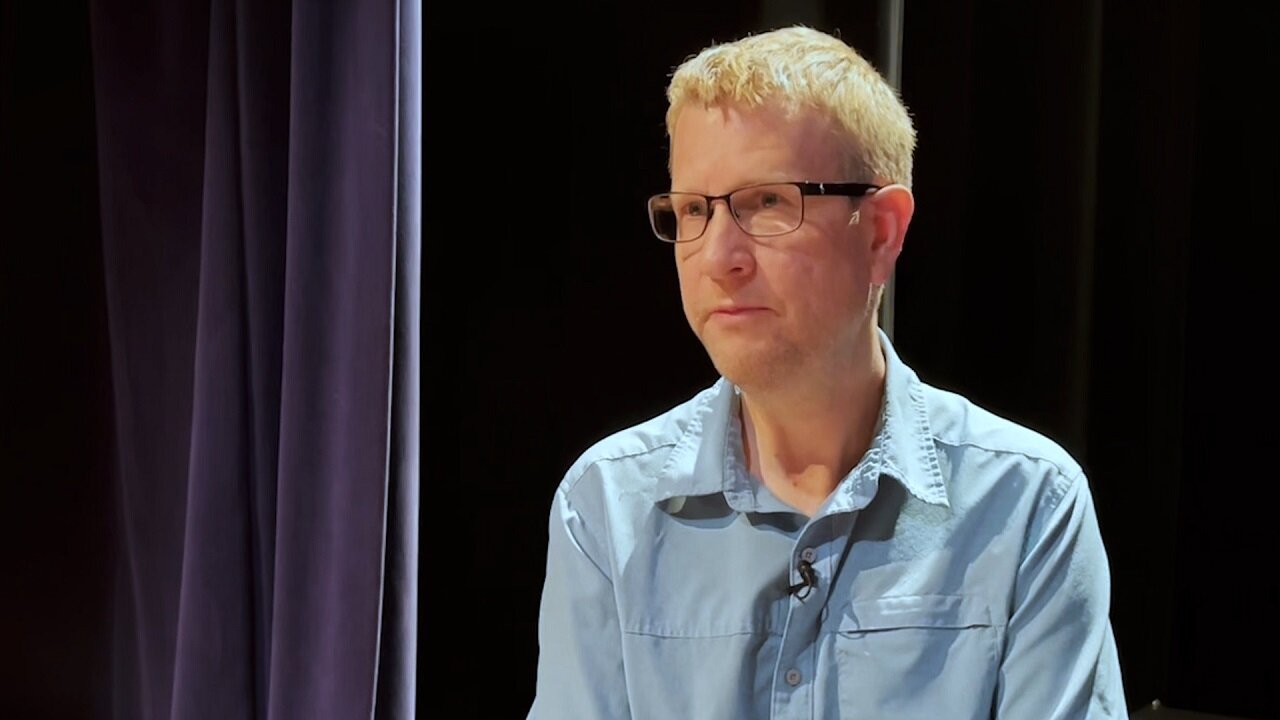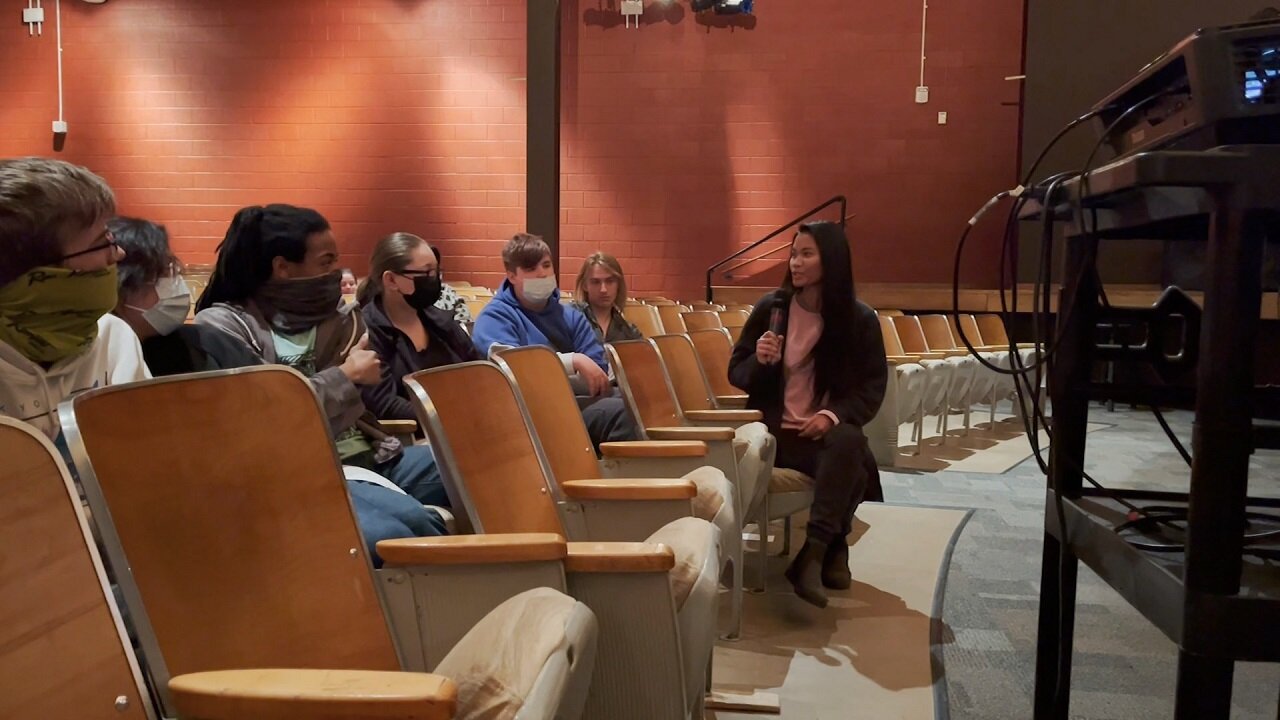Youth film festival showcases the power of local media

COLORADO SPRINGS, Colo. — As a graduate of District 11’s Palmer High School, future documentarian Tom Shepard said he felt he had to leave Colorado Springs to pursue film.
Growing up, “I felt, as someone who was interested in making films, that I couldn’t stay here,” Shepard said. “A story was somewhere else — it certainly wasn’t in my backyard. It was in Hollywood.”
Today, as founder and director of nonprofit Youth Documentary Academy — and creator of five feature-length documentaries — Shepard says, “I can tell you — that is not the case anymore.”
Amidst his own career successes, Shepard returned to Colorado Springs to make the opportunities he never had available to area youth. He is responsible for shifting the narrative of youth involvement in documentary filmmaking by showcasing the power of locally produced media.
In its ninth year, Youth Documentary Academy’s (YDA) summer intensive program pairs local students with professional filmmaking crews to support production of what has become 100 short films, with narratives exploring transformative experiences in the students’ lives.
YDA students, Shepard said, realize they are “not just the person in the story — but can now be the writer, and the director. There's something about abstracting these stories that have maybe been our Achilles heel, that once you become the director, the orchestrator, and not the one that's directed — it's like owning the story, instead of the story owning them,” Shepard said. “I think that’s been one of the most powerful experiences.”
This year, Shepard and YDA took the show on the road, visiting area high schools in a weeklong series of programming to engage students in some of the difficult conversations these films face.
The Youth Media Matters Film Festival introduced students to filmmakers and experts who facilitated post-screening Q&A sessions and conversations between youth about suicide prevention, relationships, bullying, racism, and more.
“This film festival has been a long time coming,” said Shepard, who has staged a number of one-off screening events over the years on request from teachers, church groups, and communities.

Thanks to an opportunity through Alexis Knox-Miller and District 11’s Equity and Inclusion team, Shepard said, YDA was invited into schools to connect with students first hand.
“There’s a great opportunity,” said Shepard. “We’ve got kids in the Pikes Peak region generating stories out of our own community. What would it be like to have those kids show them to peers, and start a conversation that’s really between and among youth?”
The films are often very personal, said Shepard. “They’re a snap shot of a time in life when they are going through some, in many cases, difficult issues, and in some dark corners,” Shepard said. “I think it’s a nice reminder for kids who are maybe in some really difficult situations, to see that same person a few years later, to be like, ‘It gets better,’ you know? That they’re not the only one going through that.”
Shepard said mental health emerges as a consistent theme through every film. “Whether it’s about being a first generation immigrant, race and colorism, or about the bug museum that your great-grandfather started in Southern Colorado, they all raise issues about teens and mental health,” said Shepard. “We see year after year that kids want to talk after the films because they’ve been there, too.”
“There are some people who would rather avoid tough topics because they’re worried it’s more dangerous to bring the topic up,” said Cass Walton, Executive Director of Pikes Peak Suicide Prevention Partnership, a local nonprofit that provides free suicide prevention support services for the community. Walton partnered with the festival to provide moderation and on-site mental health support for teens. “What we know is, whether you do talk about it or not, these issues exist,” she said.
In her film “Under the Wire,” a teenage Madison Legg interviews her younger brother, who had tried to commit suicide, an act that had hard and confusing reverberations through her family. Legg said when the film was made, they hadn’t yet processed the trauma or grief. She said production of the film helped her family heal, though it was hard at first.

“It’s always hard to see yourself portrayed on film,” she said.
The validation among youth that comes from shared discussion and personal story telling helps to normalize talking about difficult topics, Shepard said. “When they see young people able to have these conversations, I think it sparks them to be able to do it, too.”
For him, that’s the goal. “It’s all about, how do we break silence around some of these really, really difficult things? Powerful conversations are opened up because of these films and these students’ visions.”
The stories keep giving — and they keep going. Once the film is made it becomes advocacy work, Shepard said, and the films often appear on the now-nationally syndicated program Our Time which airs on Rocky Mountain PBS.
"It's one reason why I love that the graduates of our program come back year after year to share their stories,” he said. “We ask them to teach the next generation, and the students love that.”
Area youth can apply to produce their own short film through Youth Documentary Academy through April 15 here.
Kate Perdoni is a multimedia journalist for Rocky Mountain PBS and can be reached at kateperdoni@rmpbs.org.
